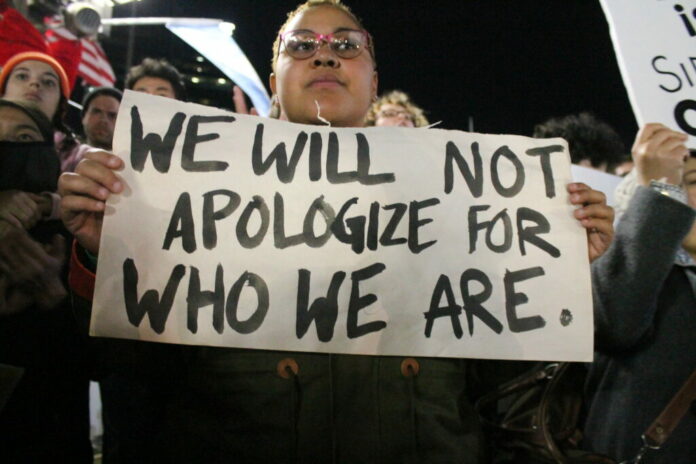I haven’t felt like things are normal in my country for a long time now.
So despite CNN’s attempts to turn the Democratic presidential debates into American Gladiators, there was something refreshing about several hours of prime-time TV dominated by the shared awareness that the Trump presidency is a dangerous and hateful aberration.
Although, if you noticed, that wasn’t the attitude of the debate moderators. They mostly questioned the Democratic candidates as if this were just another election, as if there were no particularly unusual threat to basic American values like pluralism and inclusiveness and democracy.
My point is this: Wide swaths of the American public – especially, but not only, the people he has directly threatened and maligned — are essentially traumatized by Trumpism. But that trauma is not reflected in the attitude of our elite media.
And most importantly, it’s not reflected in the news coverage.
This week has been a dry run for a new project I intend to launch soon, called Press Watch. It’s an urgent intervention to improve American political journalism.
One element will be a widely-sourced daily critique of political coverage. But another will be an attempt to identify best practices in political journalism – to find great examples of the kind of news coverage that the public, in this time of national crisis, so desperately needs.
And the first thing I’m looking for are examples of solid reporting on the trauma of Trumpism — about people who are living in fear or anguish, whose lives have materially changed, who feel under siege, who have seen important relationships rupture.
The opinion pages of our newspapers feature a fair amount of Trump-related anguish, and some essayists have been particularly eloquent. Here, for instance, is Jamil Smith, writing for Rolling Stone:
It may be easy for some to digest, but not for me. There is no getting used to this when you are in the crosshairs of this policy, when people who look like you sit patronized by a president who tells them all the time about how he got a few more of us some jobs and few more of us out of jail, then acts as though we should be satisfied with that. “What do we have to lose?” he asks, while we sit in this systematically racist America. “Why do we hate America?” he wonders aloud, as we criticize his administration for working consciously to exacerbate inequities in everything from health care to education to housing. “Why don’t we want safety and security?” Trump proclaims, as we see his government treat migrants (the ones who survive) like literal vermin while comparing our communities to “infestations.” Again, there is no getting used to this.
With Trump increasingly taking aim at virtually everyone but aggrieved white people, I’m sure there are some important and dramatic news stories to tell about this as well.
I saw one great example a few days ago in the Los Angeles Times, headlined: Trump is challenging what it means to be American, and naturalized citizens are unsettled.
The story by Matt Pearce, Michael Finnegan, Tryone Beason and Melissa Gomez, featured an excellent diversity of sources. Here’s how it started:
On the day Donald Trump was inaugurated president, Sonora Jha was walking past a group of white men at a work site in downtown Seattle when one told her, “Go home!”
Jha, shaken, didn’t know whether to confront the men or let it go: This was her home. After immigrating from India, the author became a naturalized American citizen in 2016. An equal, or so she thought.
When President Trump’s supporters chanted a new version of that threat against his critic U.S. Rep. Ilhan Omar, calling for Trump to “send her back” to Somalia, the familiar words jolted Jha and other naturalized citizens.
“It does make us afraid,” said Jha, 51. “For immigrants who are naturalized citizens, there’s a sense of shame when something like this happens in the country that you call home.”
And when they explained the context, the reporters didn’t mince words:
Trump has stoked racial animosity unlike any other president in recent history, challenging what it means to be a U.S. citizen by transforming the nation’s immigration policies and accusing opponents of not belonging in America.
And this tweet, from PBS Newshour White House correspondent Yamiche Alcindor, was promising:
I look forward to her report.
I’ll keep an eye out for more. And I’ve asked some folks who more closely follow ethnic media to let me know if they’re doing any better.
But I also need your help. Have you seen some good examples? Please tell me about them, either in comments, below, or by emailing me at [email protected].
